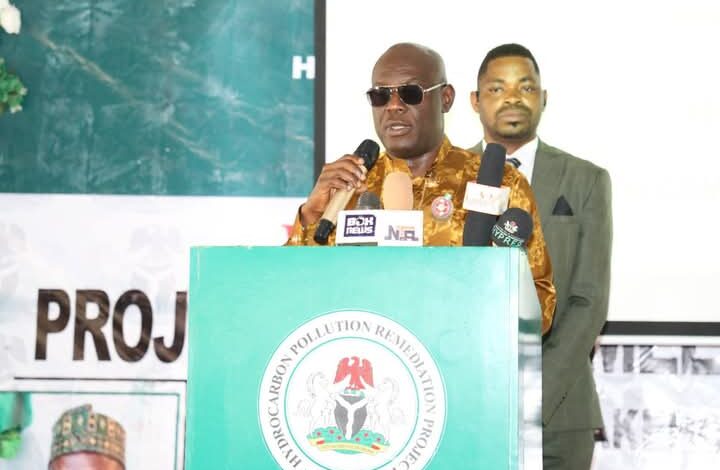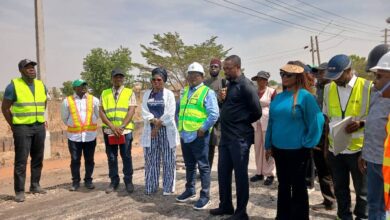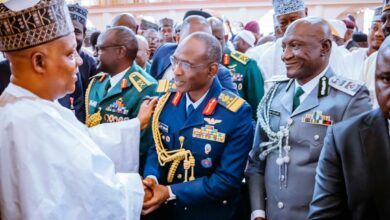
The Hydrocarbon Pollution Remediation Project (HYPREP) said it created over 7000 both direct and indirect jobs. It also attained 75% complete restoration of 560 ha of oil-degraded mangroves among other achievements.
Project Coordinator of HYPREP, Professor Nenibarini Zabbey disclosed this at a stakeholders engagement forum with Ogoni key stakeholders in Port Harcourt.
Zabbey, while reeling out the significant achievement recorded by the Project, attributed the feat to the tremendous support Ogoni stakeholders offered. He therefore canvassed for continuous collaboration for the project’s completion.
He stated that the Project had performed well in the following areas: “75% completion of restoration of 560 ha of oil-degraded mangroves, with over 1 million mangroves planted, 20% completion rate recorded for shoreline remediation while substantial advancement has been recorded in the land remediation-where there are interventions in soil and ground water and the Centre of Excellence for Environmental Restoration (CEER) hitting 70% completion”.
Furthermore, the Project Coordinator added that the Ogoni Specialist Hospital, Buan Cottage Hospital, and the Ogoni Power Project were all progressing steadily, noting that following the remediation of land and shorelines, more areas were being freed up for farming, fishing and other productive uses.
He also disclosed that the Project was in talks with the African Development Bank (AfDB) to establish an agro-processing hub in Ogoni.
Recognizing the importance of access to sustainable clean water in enhancing public health and well-being, Professor Zabbey reaffirmed the Project’s commitment to sustaining these interventions. Along side the other water schemes in the Phase 1 contracts, the Project is embarking on another 14 schemes that will cover over 68 Ogoni communities.
Already 2 have water stations were commissioned in Bomu and Kporghor in Gokana and Tai LGAs respectively. Professor Zabbey informed that the Project had strengthened its operations, monitoring and evaluation framework for optimal development impact by creating a Technical Coordination Committee, Remediation Documentation Review Committee and Milestones Committee with members drawn from post-UNEP consultants, SPDC and Civil Society Organizations.
The Project Coordinator informed that, ”we achieve value for money and sustain stakeholders’ confidence in our ability to deliver on our mandate, address bottlenecks and interventions meet high standards of impact and sustainability”.
In the same vein, he said the Project had created over 7000 both direct and indirect jobs and prioritizing human capacity development as evident in the training of 5000 youths and women in 20 skill sets and other strategic workshops.
Further to charting a sustainable socio-economic development of Ogoni, the Project Coordinator announced that the socio-economic study of the region would commence in 2025.
He maintained that HYPREP’s achievements underscored the Federal Government’s commitment to restoring the Ogoni Environment and enabling sustainable development.
While urging stakeholders to continue playing their roles actively and constructively, Prof. Zabbey stated:
”Your contributions, vigilance and constructive engagement are invaluable for overcoming challenges and achieving shared objectives. HYPREP cannot succeed in isolation, the active participation of Ogoni communities, traditional institutions, and all other parties in a constructive manner is fundamental to the success of this transformative initiative”.
Stakeholders drawn from different socio strata of Ogoni, commended HYPREP for the achievement so far, calling for project acceleration and increased community ownership and participation.
The Project Review Meeting is a deliberate stakeholder strategy of HYPREP to ensure community input, participation and support for effective project delivery in Ogoni and in line with the Minister of Environment, Mallam Balarabe Lawal’s strategic paradigm of planning with the people and not for them.






